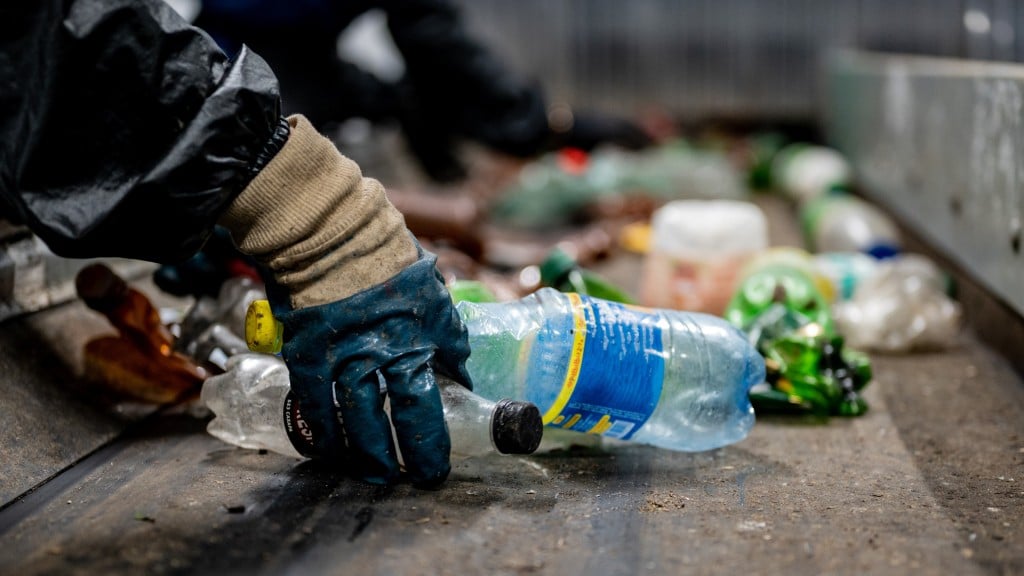Grupo Ecological transforms plastic waste into premium products with Lindner technology
Grupo Ecological drives circular economy success through collaborations with Unilever and Lindner

Sustainability, quality, and achieving the best possible cost-benefit ratio are core elements of a circular economy and the foundational values of Brazilian company Grupo Ecological. Founded in 2012, the company builds on the extensive knowledge and experience of its predecessor, which had been processing plastics since the 1970s.
"Sustainability has played a prominent role at Grupo Ecological ever since its foundation," explains Fábio Kühl, circular economy advocate and founder of Grupo Ecological. "From the outset, our goal was to provide our customers with sustainable and cost-efficient solutions in the area of recycled raw materials, waste management, and consultation on matters of sustainability."
Over the years, Grupo Ecological has established itself as a specialist in recycling post-consumer and post-industrial plastics. As a manufacturer of high-quality recyclate, the company makes a valuable contribution to a functioning circular economy.
"We are aware of our socio-ecological responsibility and more than happy to step up to this role," says Kühl. "It is precisely why we started the #circularsustentável program." This is a closed-loop program that aims to transform post-consumer plastics into high-quality recyclates.
The recyclates produced through this program are used to manufacture premium products made entirely of 100 percent recyclate. This approach benefits both the economy and the environment and has already proven successful in a collaboration with Unilever.
Successful collaboration with Unilever
The collaboration with Unilever is a standout success story for the #CircularSustentável program. In August 2022, after two years of intensive research, Unilever launched the first caps in Brazil made entirely from 100 percent recycled post-consumer plastics for its Silk and TRESemmé brands.
Shortly after, brands such as Rexona, Seda, and Comfort followed suit, using the same recycled caps. This initiative keeps 700 tonnes of plastic recycled materials in circulation annually. Unilever also achieved its global goal of using at least 25 percent recycled plastic in its packaging three years ahead of schedule — a significant achievement for both Unilever and Grupo Ecological.
"Producing recyclate to be used in the cosmetics industry means it requires a high degree of purity, consistent quality, and it needs to be odorless and virtually neutral in color," Kühl explains. "A standard that we are able to achieve thanks to our Lindner washing and recycling plant."
Advanced recycling technology from Lindner
Fábio Kühl and his team discovered Lindner's recycling technology at a plastics trade show in Brazil. After visiting facilities using Lindner shredders and washing lines, and conducting material tests, Grupo Ecological invested in Lindner equipment. Today, the company operates two Micromat 1500 shredders and Lindner Washtech components.
Using this equipment, Grupo Ecological processes post-industrial materials such as biaxially oriented polypropylene (BOPP), big bag waste, and post-consumer materials made from BOPP and polypropylene raffia (Rafi-PP).
When handling heavily contaminated materials, such as post-consumer plastics, efficient washing and drying processes are critical to achieving the quality needed for recyclates.
"Our production includes two different recycling lines, one to process post-industrial plastics and another to recycle post-consumer plastics. When processing the post-industrial material, the plastic flakes coming out of the shredder are sent directly to the extruder whereas the post-consumer recycling line incorporates the Lindner Washtech washing components in between these machines," says Kühl.
Kühl highlights the importance of Lindner's shredders: "The Micromat series of Lindner shredders represent the key component of our lines and they are pivotal to our production capacity. They are extremely reliable, even when handling tough materials, and offer an impressively high, consistent throughput with a screen size that ensures 90 percent of the output is shredded to under 25 millimetres. We process up to 800 tonnes of plastic a month — so reliability is of paramount importance. Throughout the years, Lindner has been, and continues to be, a reliable partner on our path to success."
The collaboration between Unilever Brazil and Grupo Ecological serves as a global benchmark for effective circular economy practices. In 2023 alone, Unilever increased the proportion of post-consumer plastics in its packaging from 27 to 37 percent.
"Fabio Kühl and his team have shown with this project that, given the right technology, it is entirely possible to produce high-quality recyclate from post-consumer plastics and for this recyclate to fulfill the strict criteria of the cosmetics and food industry," says Frederico Hartmann, CEO of Lindner LATAM, about Grupo Ecological's success.
Unilever's recycled caps, made entirely from post-consumer plastics, are now used across its Personal Care division and in its Nutrition business, such as for ketchup bottle caps. "We have collaborated with Fabio Kühl for many years and so it is particularly pleasing to see such a positive outcome of this project and that our shredding and washing expertise is used efficiently in connection with the circular economy."



